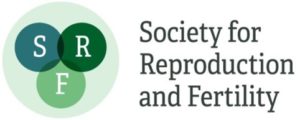SYNOPSIS OF CAREER / RESEARCH INTERESTS
I am a of reproductive biologist who cloned inhibin and activin, the master negative feedback hormones of the reproductive cycle. My work illuminated how these hormones act on numerous cell types at the molecular, structural and physiological levels. an inability to mature individual follicles in vitro was a major gap in the field of reproductive biology and medicine. A highly collaborative effort resulted in the development of a 3-dimensional support system that provides the critical tensile strength and bio-integrity for the expanding multicellular follicle. These breakthroughs are providing new routes for fertility preservation and new ways to understand follicle function and ovarian disease. I engage bioethics, biohealth law, economics, communication science and policy discussions in the dialogue to ensure that a robust and transparent debate is invigorated as new reproductive technologies develop. The combination of science and medicine with ethics, religion and the law led to the new field of medicine, oncofertility. Among My recent contributions are the invention of a 3D printed ovarian bioprosthetic, a microfluidic system that mimics a 28-day menstrual cycle, he co-discovery that zinc is a signal of oocyte competence necessary to the transition between meiosis and early development and the first human MII eggs matured from early secondary follicles.
CAREER HIGHLIGHTS
She was awarded the Presidential Award for Excellence in Science Mentoring in an oval office ceremony by President Obama (2011). Woodruff holds 10 U.S. Patents, and was elected to the National Academy of Inventors. Some of her recent awards and honors include a Guggenheim Fellowship (2017), the Society for Endocrinology Transatlantic Medal (2017), and a Leadership Award from the Endocrine Society (2017). She has two honorary degrees including one from the University of Birmingham, College of Medical, UK (2016). She is an elected fellow of the American Institute of Medical and Biological Engineering and the American Association for the Advancement of Science (AAAS). She is past-president of the Endocrine Society and championed the new NIH policy that mandates the use of females in fundamental research. She is civically active in her hometown of Chicago and is an elected member of The Economic Club of Chicago and on the school board of the Chicago-based Young Women’s Leadership Charter School.
VALUE OF SRF MEMBERSHIP
The community of reproductive scientist all searching for an understanding of the fundamentals of reproductive health is the most important asset of the society.


Recent Comments